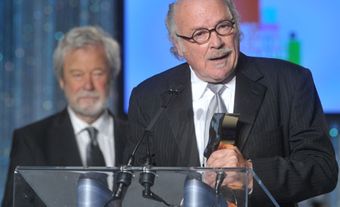Royal Bank Award for Canadian Achievement
The Royal Bank Award for Canadian Achievement was designed to honour a Canadian citizen or person living in Canada "whose outstanding accomplishment makes an important contribution to human welfare and the common good." The award was established in CENTENNIAL YEAR, 1967, and was intended to recognize the contributions of Canadians in science, agriculture, conservation, business, culture and other fields of endeavour. The award was originally $50 000.
In 1968 the name of the award was changed to the Royal Bank Award, and in 1982 the award amount was increased to $100 000. In 1994 this was increased again to $125 000, and in 1996 a companion grant of $125 000 was added to go to a charity of the winner's choice.
Recipients of the award included Wilder PENFIELD, C.J. MACKENZIE, Cardinal Paul-Émile LÉGER, Morley CALLAGHAN, Arthur ERICKSON, Northrop FRYE, Georges-Henri LÉVESQUE, Hugh MACLENNAN, Rick HANSEN, Maureen FORRESTER and David SUZUKI.
In 2000, to mark the millennium, the Royal Bank of Canada rededicated the award to honour innovative organizations and forward-thinking projects that responded to important issues facing Canadian society. In 2001, after it was renamed the RBC Award for Canadian Achievement, the last award was presented to the CANADIAN NATIONAL INSTITUTE FOR THE BLIND.

 Share on Facebook
Share on Facebook Share on X
Share on X Share by Email
Share by Email Share on Google Classroom
Share on Google Classroom

